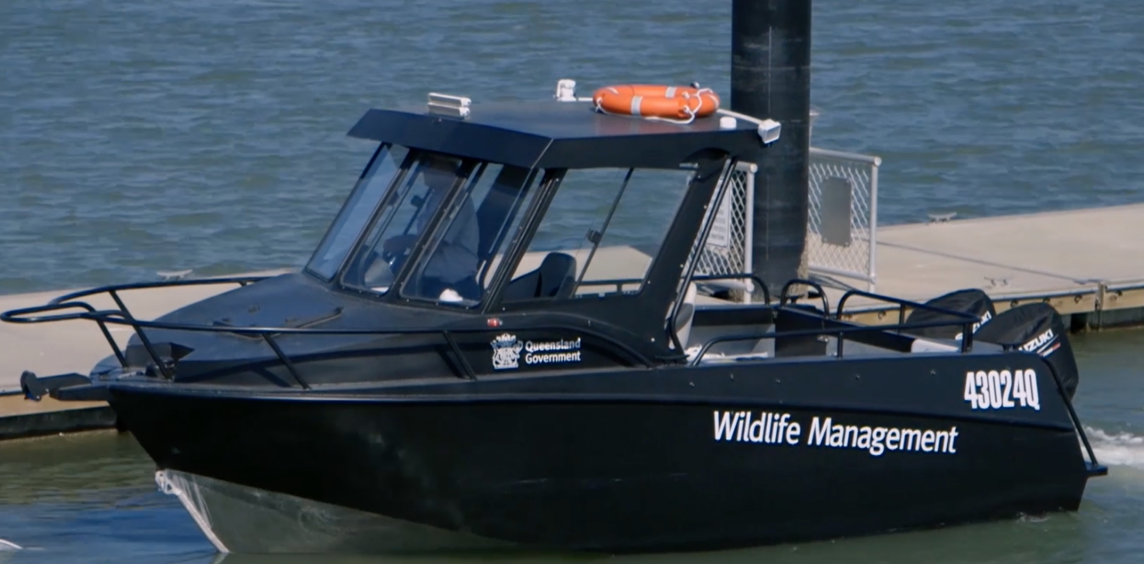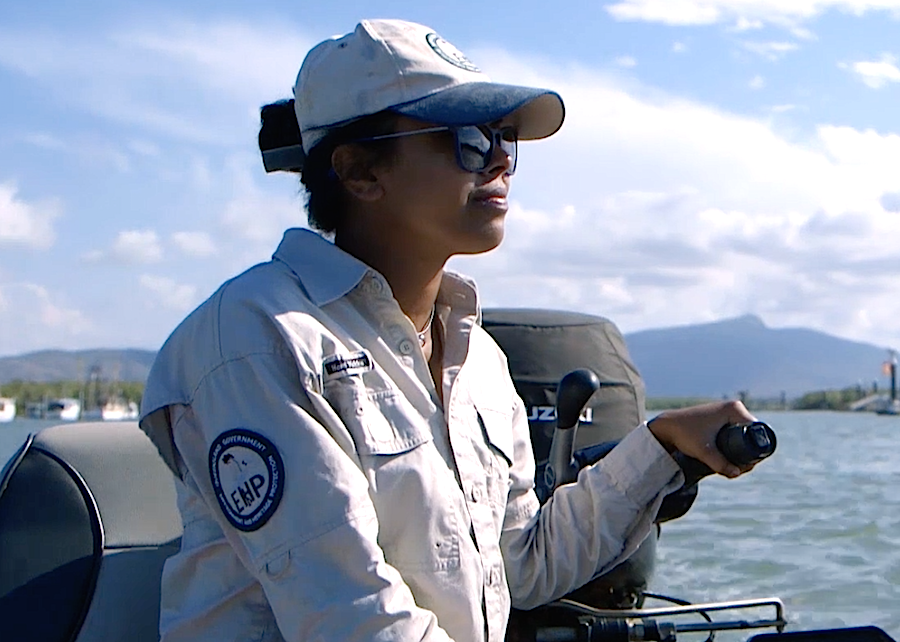New croc boat sent to Cape Trib for first monitoring mission
CROCODILE MANAGEMENT

ENVIRONMENT Minister Dr Steven Miles announced Cape Tribulation as the first priority as the state ramps up its crocodile monitoring program in Far North Queensland.
Dr Miles was in Cairns yesterday to launch a new $150,000 purpose built boat charged with dealing with the recent crocodile management concerns.
The black 5.8 metre boat nicknamed ‘BLACKBERRY’ has been custom made to navigate the crocodile dense coastal and estuarine waterways of the region, and its first priority was the waters north of Port Douglas.
“Its first mission will be coastal crocodile patrols in far north Queensland near Cape Tribulation in response to EHP received crocodile reports,” Dr Miles said.
“The vessel had been painted matt black to minimise light reflection and visibility from the water. Its black design reduces its visibility to improve the effectiveness of crocodile patrols.
“This allows staff to get as close as possible to the wildlife at night without spooking the animals, which makes it ideal for crocodile management activities.”
The Department of Environment and Heritage Protection (EHP) had previously relied on much smaller vessels which was a great disadvantage during windy conditions.
The lack of EHP resources was one of the main concerns raised by Douglas Shire Mayor Julia Leu in a recent letter to Dr Miles.
Leu hopes to meet with the Minister in the next week in an attempt to address public concern on crocodiles in the region.
Member for Barron River, Craig Crawford, said EHP wildlife officers would now be able to respond more quickly to reported crocodiles, which was another issue raised by Leu.
“Blackberry’s larger size will allow wildlife officers to operate in a broader range of coastal waters in the Great Barrier Reef, Gulf of Carpentaria and Torres Straits regions,” Crawford said.
“Having the capacity to move people and resources around quickly and comfortably is of great benefit, regardless of whether it’s in pursuit of a problem crocodile, supporting crocodile surveys in remote areas or conducting wildlife research.”

The Queensland Government has committed $5.8 million over the next three years for crocodile management, including $2.7 million for a crocodile survey and monitoring program.
EHP wildlife officers will conduct trials and reconnaissance surveys in the far north as part of the crocodile management program, starting next month.
“The information collected from these reconnaissance surveys will help the department finalise the 2017 crocodile survey schedule,” Dr Miles said.
“The crocodile monitoring program to be carried out over three years will be the most comprehensive study into Queensland’s crocodile populations in more than a decade”.
